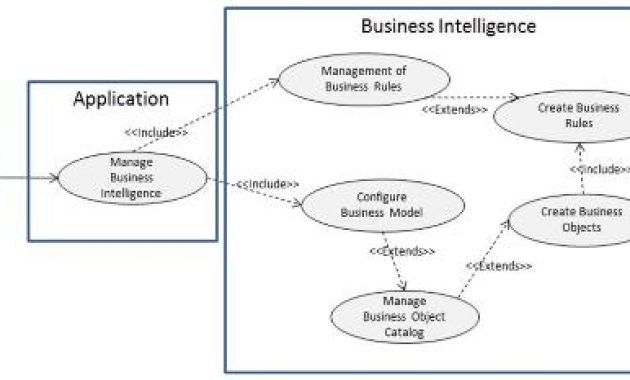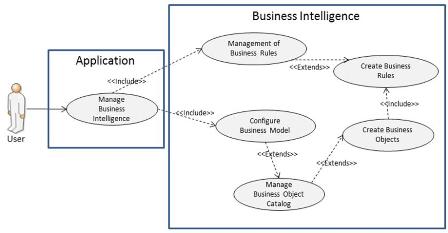
Unveiling the Power: Real-Life Use Cases for Business Intelligence Software
In today’s data-driven landscape, businesses are awash in information. However, raw data alone is often useless. This is where Business Intelligence (BI) software steps in. BI transforms raw data into actionable insights. It empowers organizations to make informed decisions. This article explores compelling use cases for business intelligence software in real-life scenarios. We will examine how various industries leverage BI to gain a competitive edge. We will look at how they optimize operations and drive growth.
Understanding the Core of Business Intelligence
Before diving into specific use cases for business intelligence software, it is crucial to understand its core function. BI is not just about collecting data. It’s about analyzing it. It’s about presenting it in a way that is easy to understand. BI tools encompass a wide array of functionalities. These include data warehousing, data mining, and reporting. They offer dashboards and data visualization. All of these tools help users to extract meaningful insights. These insights are then used to improve business performance. Effective BI implementation requires a clear understanding of business goals. It also needs a robust data infrastructure. This ensures data accuracy and reliability.
Retail: Optimizing Sales and Inventory
The retail sector is highly competitive. It faces constant pressure to meet consumer demand. Businesses use business intelligence software to gain a deeper understanding of their customers. They analyze sales data. They also analyze inventory levels. This helps them to make better decisions. Here are some real-world examples:
- Sales Analysis: Retailers use BI to track sales trends. They identify top-selling products and slow-moving items. They can then adjust their inventory. They can also optimize their product placement.
- Customer Segmentation: BI helps retailers to segment customers. They can group customers based on their purchasing behavior. This allows them to personalize marketing campaigns. This also helps them to improve customer loyalty.
- Inventory Management: BI tools predict demand. They help retailers to optimize inventory levels. This reduces the risk of overstocking or stockouts.
- Pricing Optimization: Retailers can use BI to analyze pricing strategies. They can then adjust prices based on demand. They consider competitor pricing. They also look at profit margins.
Healthcare: Improving Patient Care and Operational Efficiency
Healthcare organizations generate vast amounts of data. This includes patient records, treatment outcomes, and operational metrics. Business intelligence software is invaluable in this industry. It helps to improve patient care. It also improves operational efficiency. Here are some specific applications:
- Patient Outcomes Analysis: Healthcare providers use BI to analyze patient outcomes. They identify trends. They also assess the effectiveness of treatments. This leads to improved patient care.
- Resource Allocation: BI helps hospitals to optimize resource allocation. This includes staffing, equipment, and beds. They can then reduce wait times. They can also improve patient flow.
- Fraud Detection: BI tools detect fraudulent claims and billing practices. This helps to reduce financial losses. It also ensures compliance with regulations.
- Population Health Management: Healthcare organizations use BI to analyze population health data. They can identify at-risk populations. They can also implement targeted interventions. This improves overall community health.
Manufacturing: Streamlining Production and Reducing Costs
Manufacturers face complex challenges. These include supply chain disruptions, production bottlenecks, and quality control issues. Business intelligence software is a key tool for manufacturers. It helps them to optimize their operations. It also reduces costs. Here are some examples of how BI is used:
- Production Monitoring: BI dashboards provide real-time visibility into production processes. They identify bottlenecks. They also monitor equipment performance. This allows manufacturers to optimize production schedules.
- Supply Chain Optimization: BI helps manufacturers to manage their supply chains. They can track inventory levels. They can also monitor supplier performance. This reduces the risk of disruptions.
- Quality Control: BI tools analyze quality data. They identify defects. They also pinpoint the root causes of quality issues. This improves product quality. It also reduces waste.
- Predictive Maintenance: BI analyzes equipment performance data. It predicts when maintenance is needed. This reduces downtime. It also extends equipment lifespan.
Finance: Enhancing Risk Management and Fraud Detection
The finance industry deals with vast amounts of sensitive data. It is also exposed to significant risks. Business intelligence software is essential in this sector. It helps financial institutions to manage risks. It also helps to detect fraud. Here are some practical applications:
- Risk Management: Financial institutions use BI to assess and manage financial risks. They analyze market trends. They also monitor portfolio performance. This helps them to make informed investment decisions.
- Fraud Detection: BI tools identify fraudulent transactions and suspicious activities. This helps to protect against financial losses. It also protects the reputation of the institution.
- Customer Relationship Management: BI helps financial institutions to understand their customers. They can personalize services. They can also improve customer satisfaction.
- Regulatory Compliance: BI tools help financial institutions to comply with regulations. They generate reports. They also monitor compliance metrics. This reduces the risk of penalties.
Marketing: Enhancing Campaign Effectiveness and Customer Engagement
Marketers are always seeking ways to improve campaign effectiveness. They also want to enhance customer engagement. Business intelligence software is a powerful tool for marketers. It provides insights into customer behavior. It also helps them to optimize their marketing efforts. Here are some applications:
- Customer Segmentation: Marketers use BI to segment customers. They do this based on demographics. They also use purchasing behavior. This allows them to tailor marketing messages.
- Campaign Performance Analysis: BI tools track campaign performance. They measure key metrics. These include click-through rates, conversion rates, and ROI. This helps to optimize campaigns.
- Customer Lifetime Value (CLTV): BI helps marketers to calculate CLTV. They can then focus on retaining high-value customers. They can also improve their profitability.
- Social Media Analytics: BI tools analyze social media data. They monitor brand sentiment. They also identify emerging trends. This helps marketers to engage with their audience effectively.
The Benefits of Implementing Business Intelligence Software
Implementing business intelligence software offers numerous benefits. These benefits span across various industries. Here are some of the key advantages:
- Data-Driven Decision Making: BI empowers organizations to make decisions based on data. This reduces reliance on intuition. It also increases the likelihood of success.
- Improved Operational Efficiency: BI helps to streamline processes. It also identifies areas for improvement. This reduces costs. It also improves productivity.
- Enhanced Customer Understanding: BI provides insights into customer behavior and preferences. This helps organizations to tailor their products. It also helps them to services.
- Competitive Advantage: By leveraging data, businesses gain a competitive edge. They can respond to market changes faster. They can also innovate more effectively.
- Increased Revenue: BI helps to identify new revenue opportunities. It also helps to optimize pricing strategies. This leads to increased revenue.
Choosing the Right Business Intelligence Software
Selecting the right business intelligence software is crucial. Consider the following factors:
- Business Needs: Identify your specific business requirements. This includes the types of data you need to analyze. It also considers the reports you need to generate.
- Data Sources: Ensure the software can connect to your existing data sources. These include databases, spreadsheets, and cloud applications.
- Scalability: Choose a solution that can scale to meet your future needs. This is important as your data grows.
- Ease of Use: Opt for a user-friendly interface. This will ensure your employees can easily use the software.
- Cost: Evaluate the total cost of ownership. This includes software licensing fees. It also includes implementation costs.
Conclusion: Harnessing the Power of Data with Business Intelligence
Business intelligence software is a transformative tool. It empowers organizations to unlock the value of their data. By understanding the use cases for business intelligence software in real life, businesses can make informed decisions. They can also optimize their operations. They can also gain a competitive advantage. From retail to healthcare to finance, BI offers invaluable insights. It helps organizations to thrive in today’s data-driven world. The ability to analyze data is no longer a luxury. It is a necessity for success. [See also: Related Article Titles]
Investing in BI is an investment in the future. It ensures businesses can adapt to change. It also ensures they can capitalize on opportunities. By leveraging the power of data, organizations can achieve sustainable growth. They can also improve customer satisfaction. The future of business is data-driven. BI is the key to unlocking its potential.
